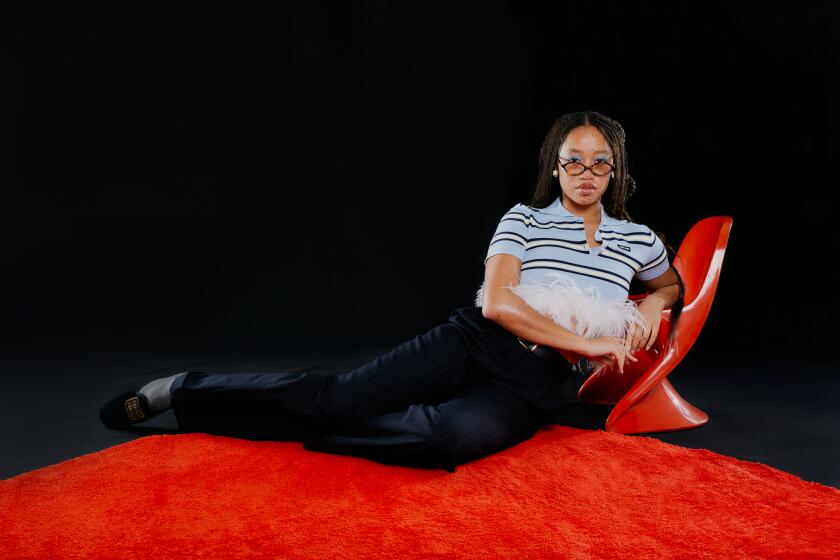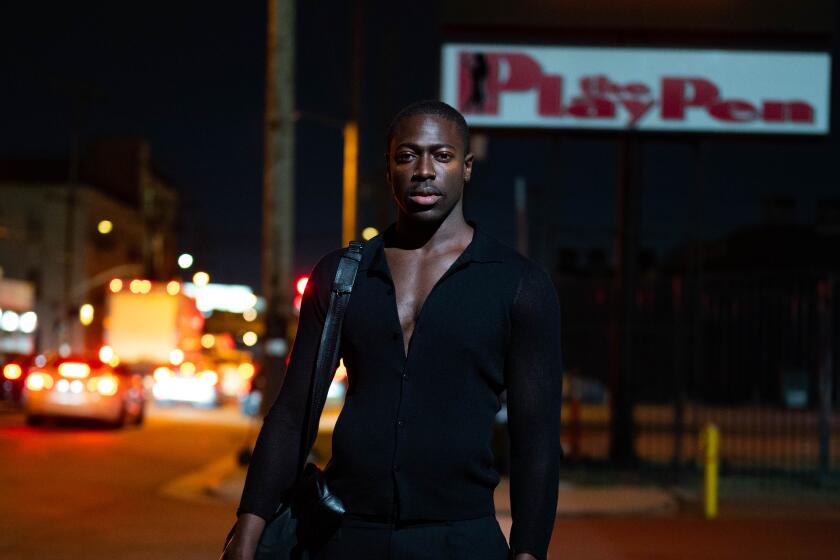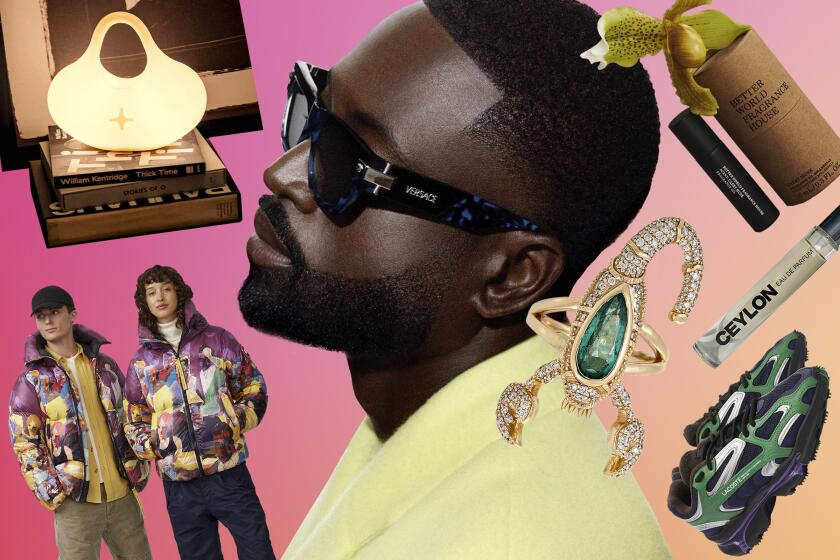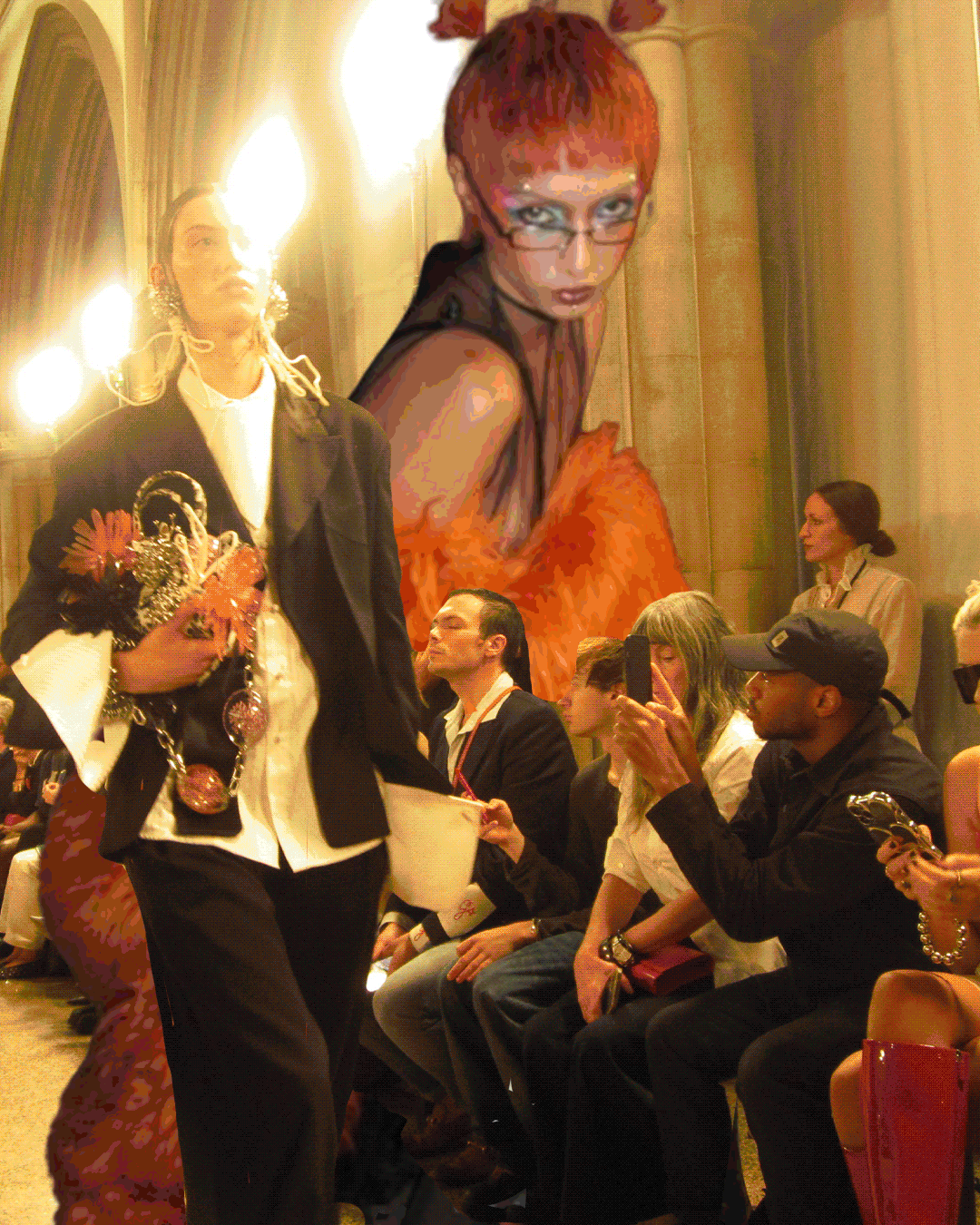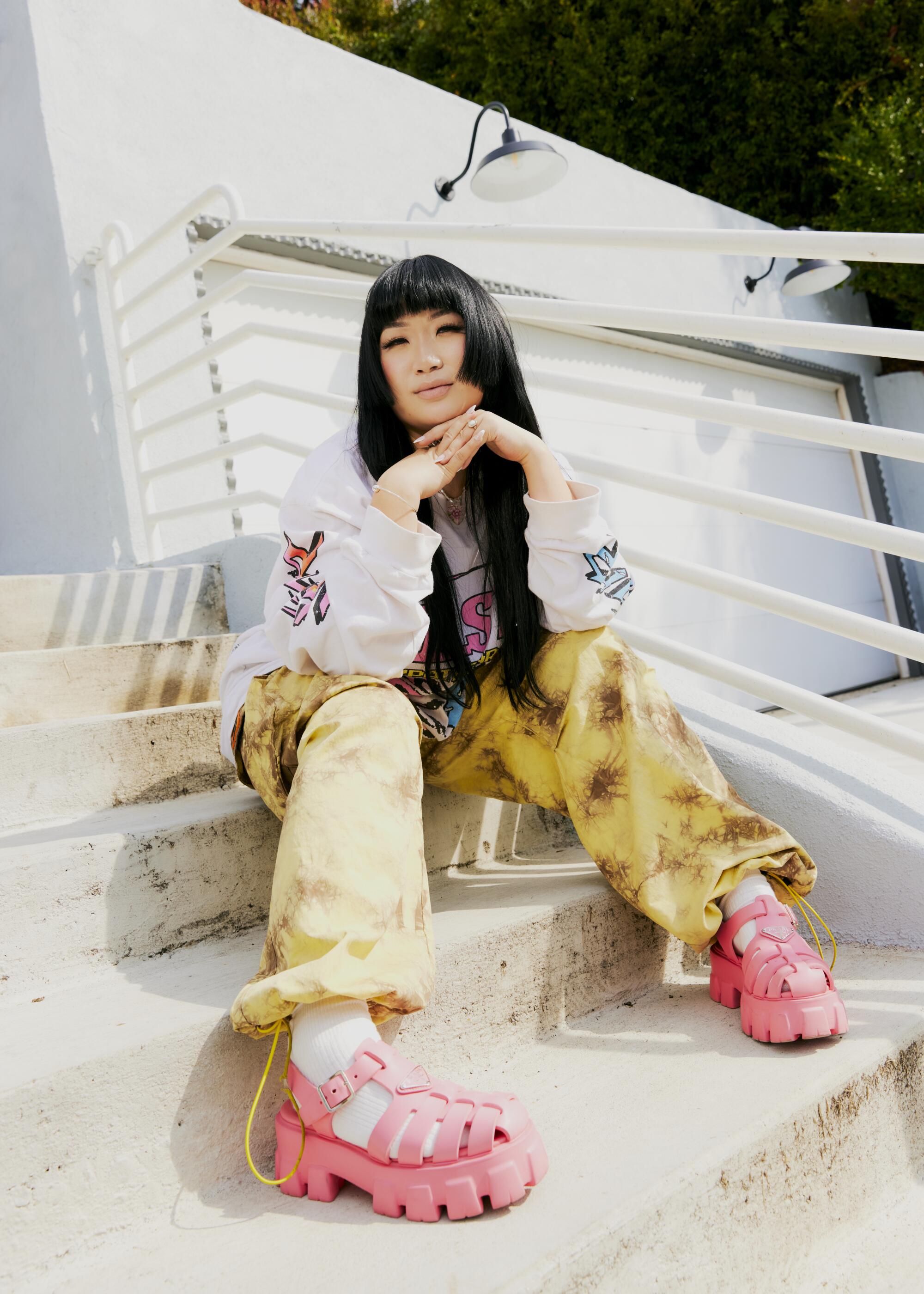
Wearing a knit football jersey and a knowing smile, Jess Mori holds a lemon out to the camera. The backyard of her Silver Lake abode overlooks a tranquil Eastside on a Friday afternoon. At this elevation, there’s nothing to hear but birds and SZA playing through the portable speaker off in the grass. Mori breaks her pose to pick another lemon, which she insists actually smells. The shoot is enveloped in a fragrance as sweetly serious as Mori herself, who immediately gets L.A.’s love for the high-low — aesthetically and geographically — even though she’s just arrived.
As a model, she is recognized instantaneously by her look. But her vibe will always be making art with, and supporting, the creative communities she’s a part of in L.A.
A Vancouver native, Mori’s recent landing in L.A. is a new beginning in a career that has seen many lives. She recounts her experiences as a fashion illustrator, designer, creative writer and copywriter. “There was this funny girl who worked at this cafe under the ad agency I worked for. Every time I came in, she’d be like, ‘Do a spin for me! Let me see your outfit!’ To the point where I’d be like, ‘I don’t work in fashion!’ But in an office space it does stand out if you wear anything remotely interesting.” Mori eventually took these encounters as a sign to quit her job and pursue her first love, moving to New York to ascend the proverbial ladder by interning and assisting stylists. Fast forward: Mori’s roster now includes Sean Paul, Salem Mitchell, Savannah Ré, Nike and Adidas, to name a few.
Like the knit jersey she wears, Mori’s thesis is all about placing the familiar in an unfamiliar context and seeing what happens. She describes her style philosophy as always having “an element of discomfort.” Otherwise, she explains, “you’re doing something super, super safe. It’s neither good nor bad. And I think that’s the worst it can be: if nobody has anything to say about it. I’ll take polar opposites versus nothing. Neutral is the worst.”
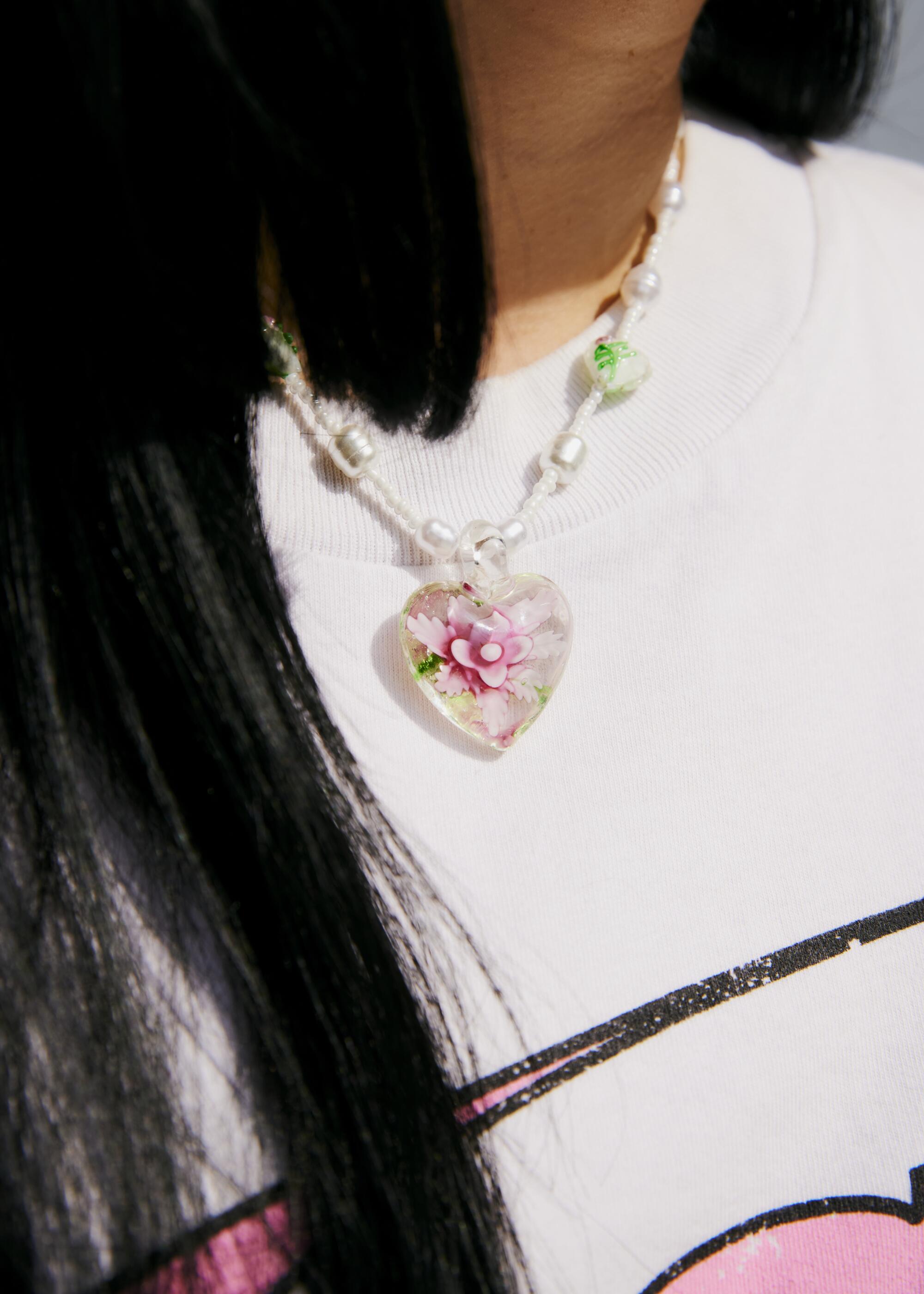
Alyson Zetta Williams: What is the first thing you address when styling yourself and others?
Jess Mori: When it comes to my own fashion, I like things that catch my eye as a statement piece. I like for things to have several lives in my closet. So even if it does have a standout quality, I just want to be so inspired by the piece that I can reinterpret it in multiple ways. It must be comfy, because — and probably every stylist says this — we’re always on the move. You’re never one temperature, you’re always hot, you’re always lifting things, so it’s important to be in layers.
I really believe that everybody has a certain DNA when it comes to their personality and how they dress themselves. I see everyone’s personality on a spectrum. And it’s exciting how far we can push that scale to the right or left. We always talk about resting bitch face. But it’s like, what’s your resting style? What is zero on the scale? Then, how do we dial it up or down?
From working with Teyana Taylor and Phoebe Bridgers to designing clothes for indie short films, Herbert’s repertoire expands across artistic and editorial spaces — worlds which she has effortlessly straddled.
AZW: You just moved to L.A. from Vancouver about a month ago. Are there any immediate or unexpected sources of inspiration that you’ve encountered since moving here?
JM: I love the idea that L.A. is this huge city, but you’re always connected to nature. There are so many plants and places to walk and hike and kind of escape to. In L.A. you already have the best backdrop for whatever you’re doing and it’s inspiring to see all the different cultures and neighborhoods. Like, this is my first time ever seeing a Thai Town or Filipinotown. I like how all these neighborhoods have their own distinct style culture. I love that you can find so many pockets of inspiration in one place.
Everybody around you is always doing something, always hustling. In order to really live this lifestyle, it helps to have other people who are doing it alongside you so that you don’t give up every time you want to. That is probably the most inspiring thing about L.A. — that you never feel like you’re doing it alone.
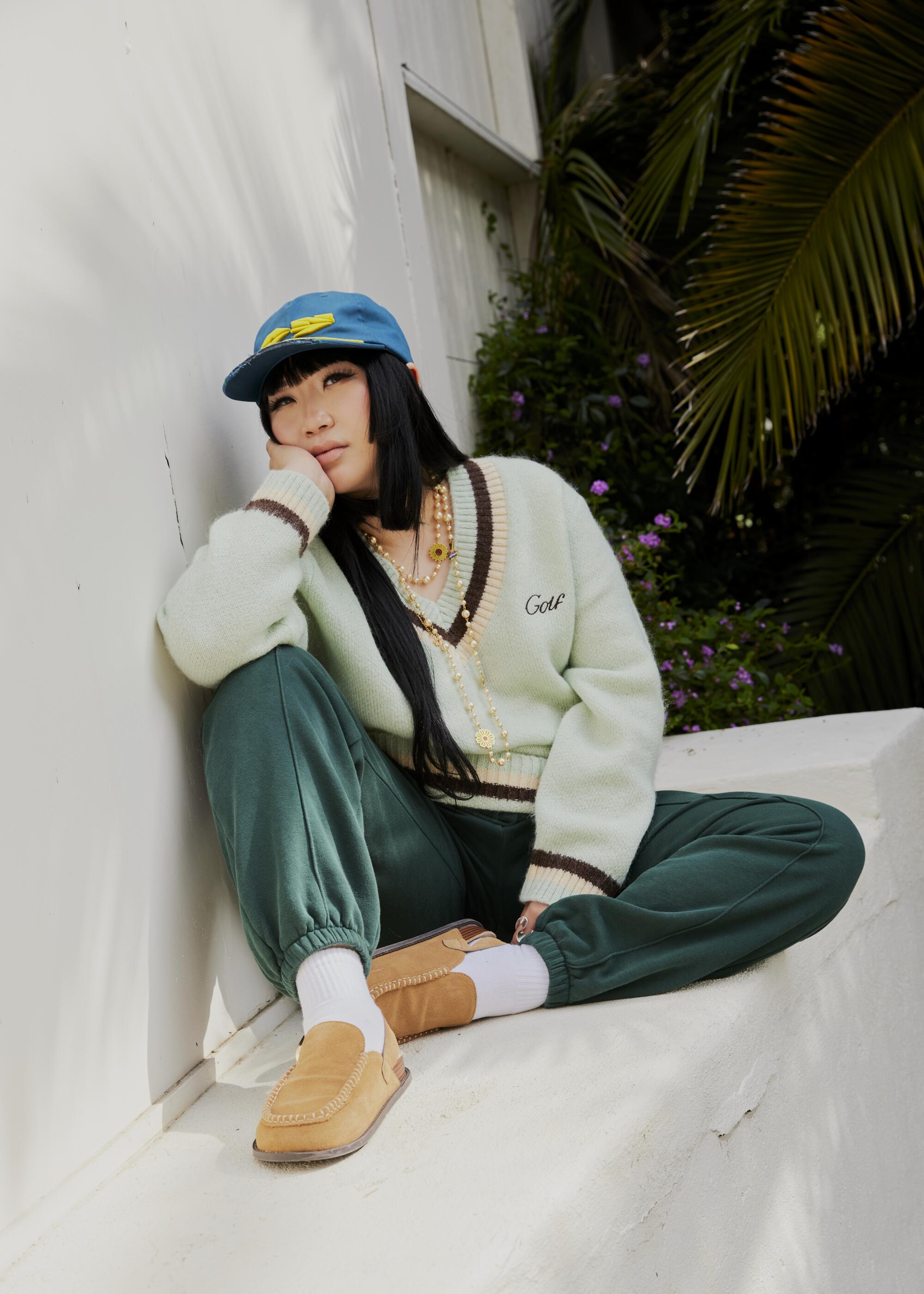
AZW: In your work, there’s a recurring juxtaposition between athletic utility and spontaneous glamour, often within the same look. Is your work more concerned with making sporty glam, or making glam into something sporty?
JM: I’ve always had this funny relationship with gender when it comes to traditional clothing. I really, really struggle with some designers who, for example, won’t let you request men’s looks for a female talent. I just don’t get it, because so much is fluid. I mean, I’m wearing a men’s collection sweater right now.
I also like to challenge the boundaries of what is high fashion, what’s luxury, what it means to be black-tie. If you tell me that something has to look elegant, does it always have to mean wearing a dress? When I’m styling, I extract all these rules about what it means to be elevated because I think that you can make anything elevated. You can make anything into a red carpet vibe.
I don’t like the term “streetwear.” But I do like taking [streetwear] and blending it with high-fashion brands and materials. I just like the clash. And that’s when I feel the happiest — when things are arguing with each other.
In L.A., the levels on the fits crescendo as the day goes on. When the sun goes down, the fashun reaches its final form.
AZW: I’ve never heard someone say they don’t like the term “streetwear.”
JM: I was having this conversation with an Uber driver the other day, because he was telling me that he designs bomber jackets. And he was like, “Oh, I just do urban stuff, though.” And I was like, “Well, don’t describe your stuff like that, because they’ll try to put you in a box.” But what is urban? Urban is moving the culture, urban is at the forefront of so much fashion and it’s on the runway at Marc Jacobs and Louis Vuitton. All these people are using streetwear in the majority of their collections. It’s about removing that stigma of “Oh, it’s just urban” or “It’s just streetwear, it’s just sportswear,” because it can all live together.
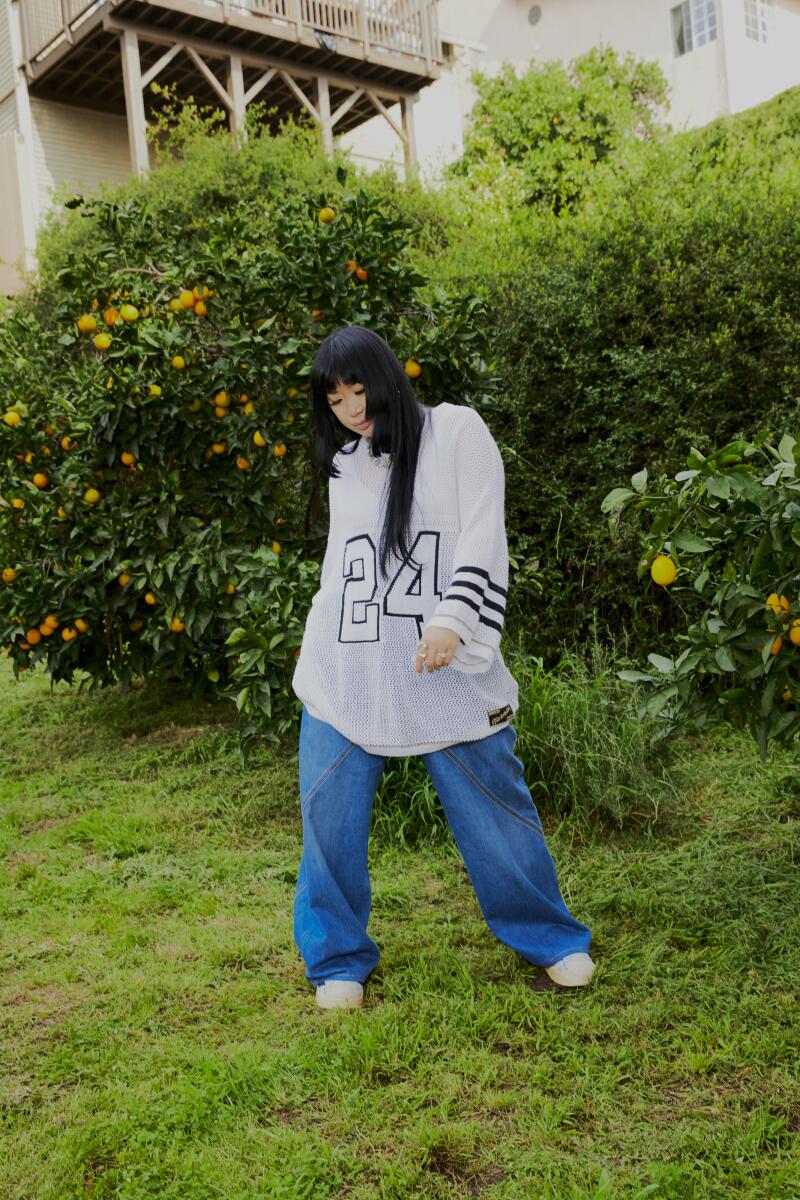
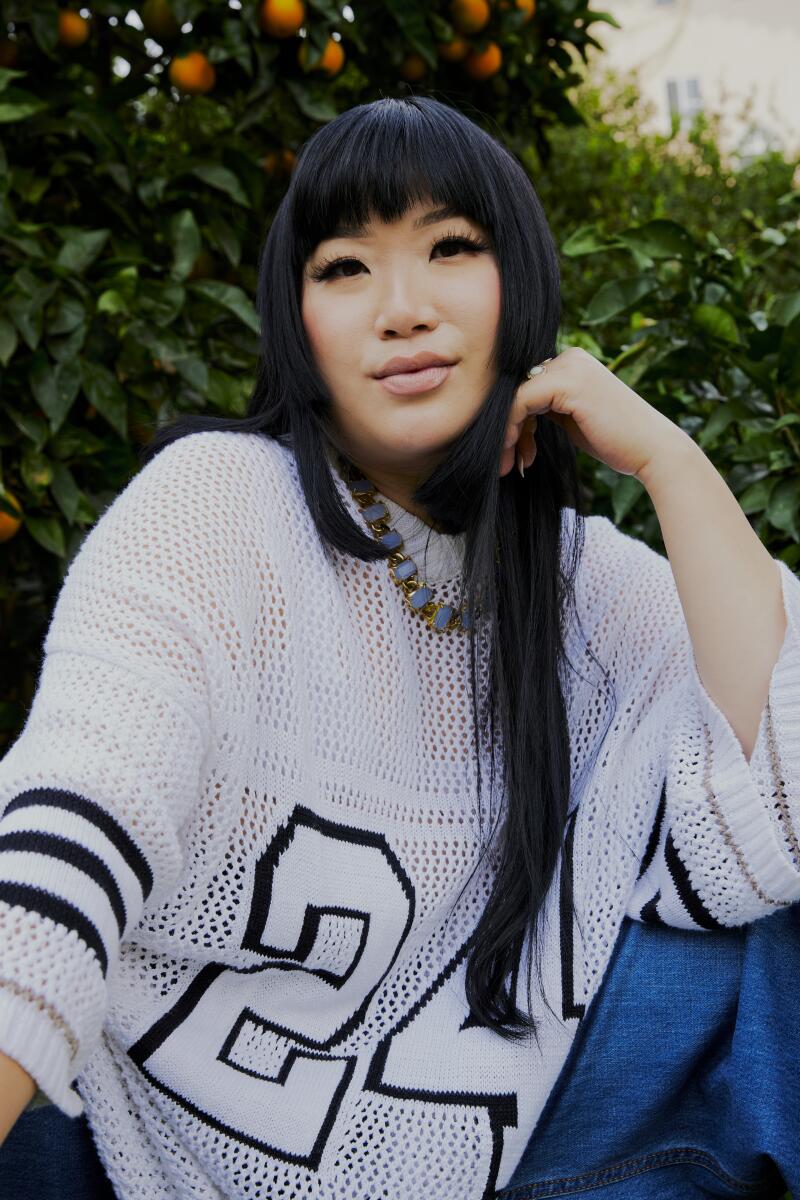
Jess wears Nahmias sweater, JW Anderson pants, Adidas shoes, Vitaly necklace.
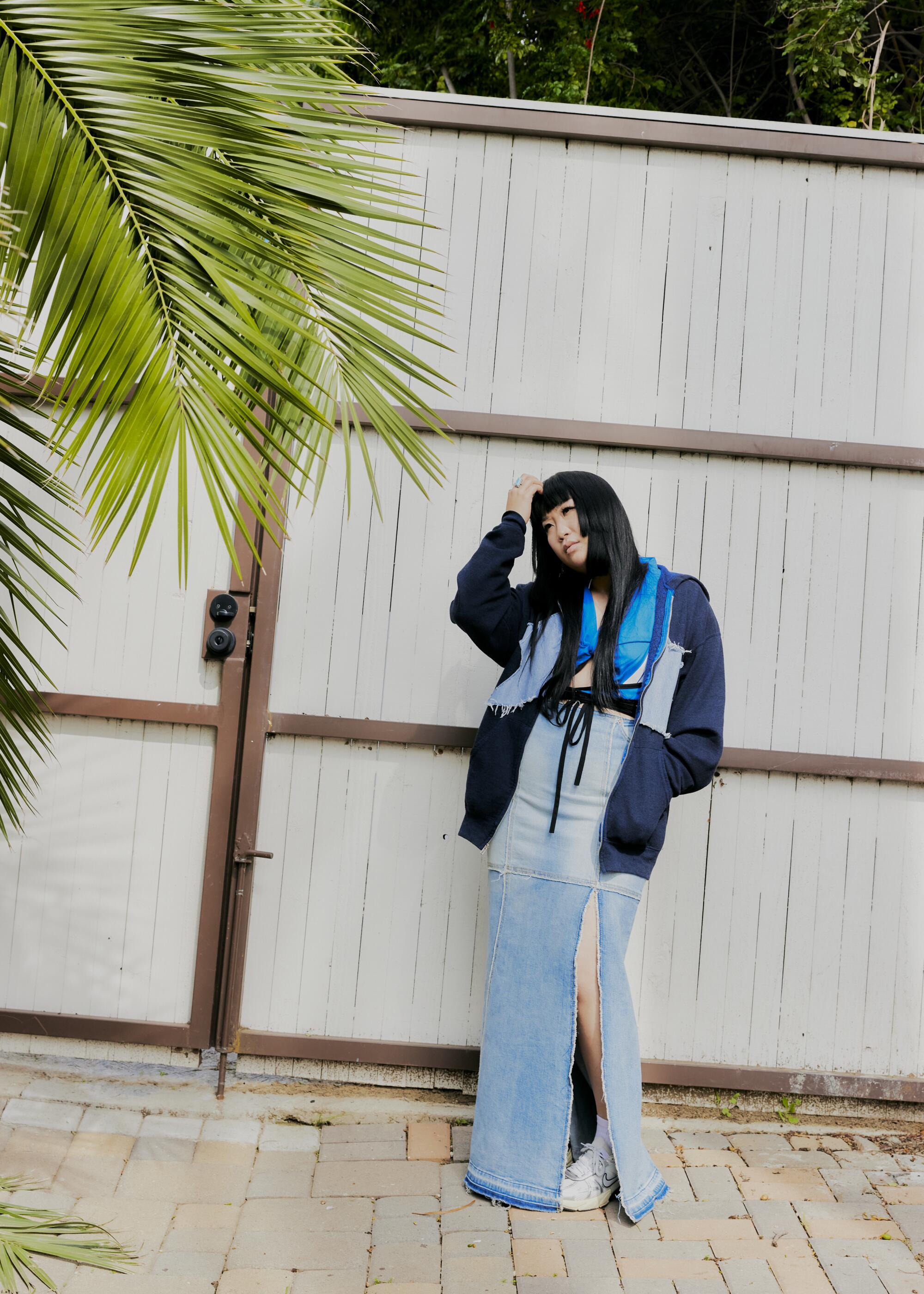
AZW: As we approach spring, how is your relationship to these concepts of utility and glam shifting?
JM: Spring is a great season to explore color. I love a uniform dress code, where you sort of have your key pieces as talking points, conversation starters. Spring is so unpredictable. You never know how many days of rain or sun you’re gonna get. I think it’s always good to dress in layers, and have your unexpected pieces but mix them with your basic uniform, which might be something like a nice blazer and well-fitted jeans.
Spring and fall, I love those two seasons the most because you have the most to play with. Summers are very limiting because you’re really restricted to whatever the lightest layer on your body could be. But spring is the best time to play and really clash, bringing unlike things together. Like pairing a cotton knit cardigan with a lighter skirt. It’s a time when juxtapositions are the way to go.
From a new Canada Goose X KidSuper puffer jacket to a Marc Jacobs tote bag necklace, here’s what to covet this March.
AZW: In a Jess Mori world, what would spring style look like?
JM: As you’ve gathered now from this interview, I’m very contradictory in all my choices. I just want to see people playing with color more. I just came back from New York and saw a lot of black everywhere.
L.A. has so much vintage and handmade stuff that I think if you’re trying to carve out something unique to you, there’s nothing better than going into thrift stores and finding something that you know you’ll be the only one wearing. Spring is a good time to be on the hunt for special pieces.
Right now, I really love football jerseys and knitwear. I’d love to see more granny-like knitwear go mainstream, like what Sandy Liang’s done. I love seeing people play with bows and then be wearing a utility work pant, or the juxtaposition of somebody wearing a hoodie with a miniskirt.
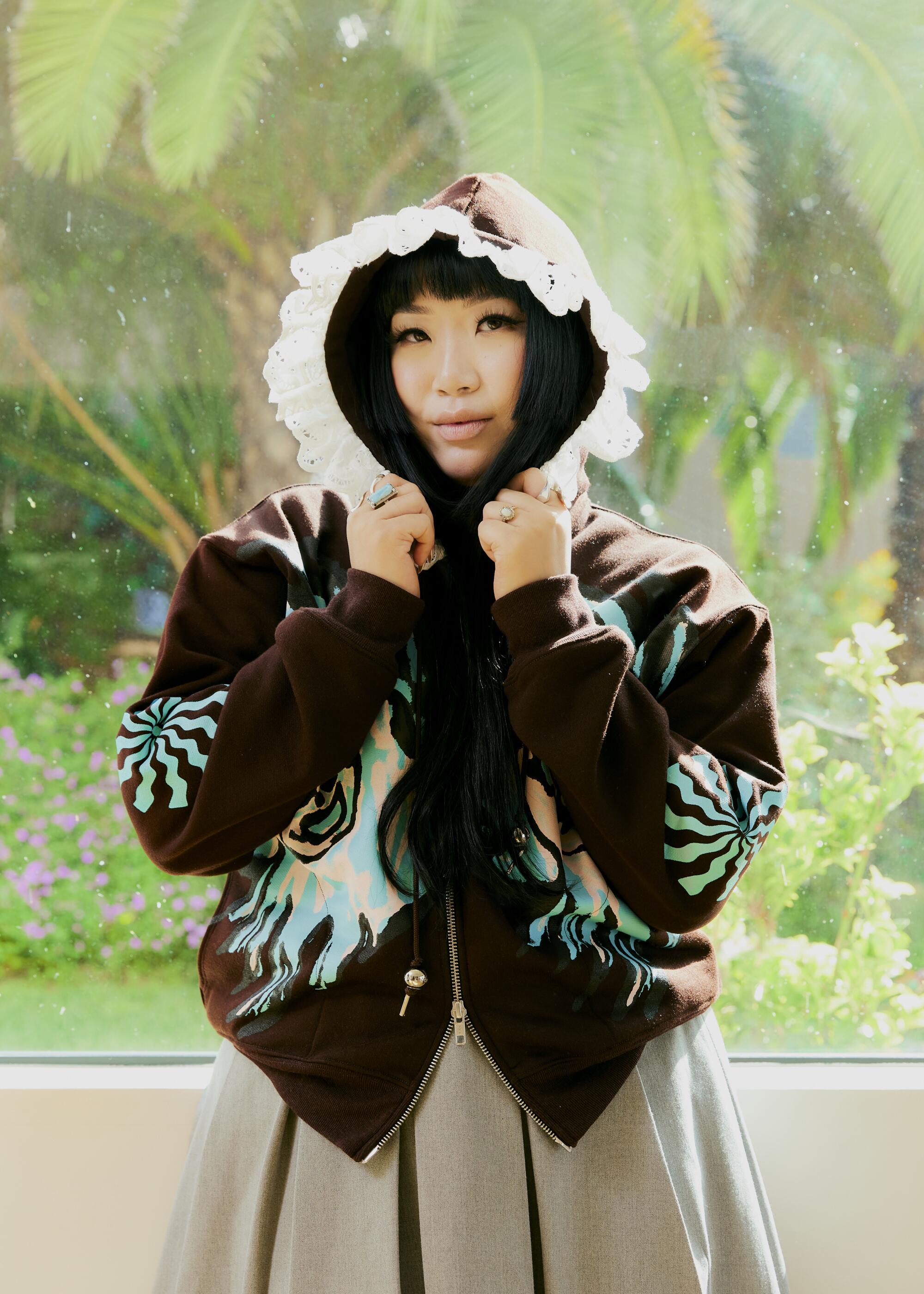
AZW: When you style yourself, where do you add those utility and/or glam elements?
JM: Shoes and jewelry are usually the places where I express glam the most. Jewelry and shoes are probably where I will spend extra.
And then utility … I’ve never owned more than probably two pairs of jeans at once. I don’t love tight-fitting pants. So once I find a good jean, I either get a size bigger and then have it tailored to the correct size, or vice versa. I find utility in jackets, which are always good layering pieces. Utility is very often found in my bags. Prada’s nylon collection is the best because you can’t stain it. I always have to have a huge bag. So I’m never too far away from a huge tote bag with an organizer inside. I have a Gucci backpack with the perfect pocket for receipts. I can’t do these tiny Polly Pocket purses people are carrying around. I found the best $30 sling bag, and I bought three of them, one in each color because they were so good for sets or just everyday life. They have, like, 42 pockets all over the place. Pockets are always a utility trick.
I love using my Korean and Japanese heritage as a backdrop. I’m naturally drawn to silhouettes like Yohji Yamamoto’s, or Sandy Liang’s, or Andersson Bell’s. They speak to what we were talking about before with fluidity, these designers are fluid with their shapes. So you’ll never feel too feminine or masculine. It’s a really nice balance of both worlds.
Alyson Zetta Williams is an L.A.-based writer whose work has appeared in i-D, NYLON, Office Magazine, Rookie Mag and more. Her substack is sorry4444.substack.com.
